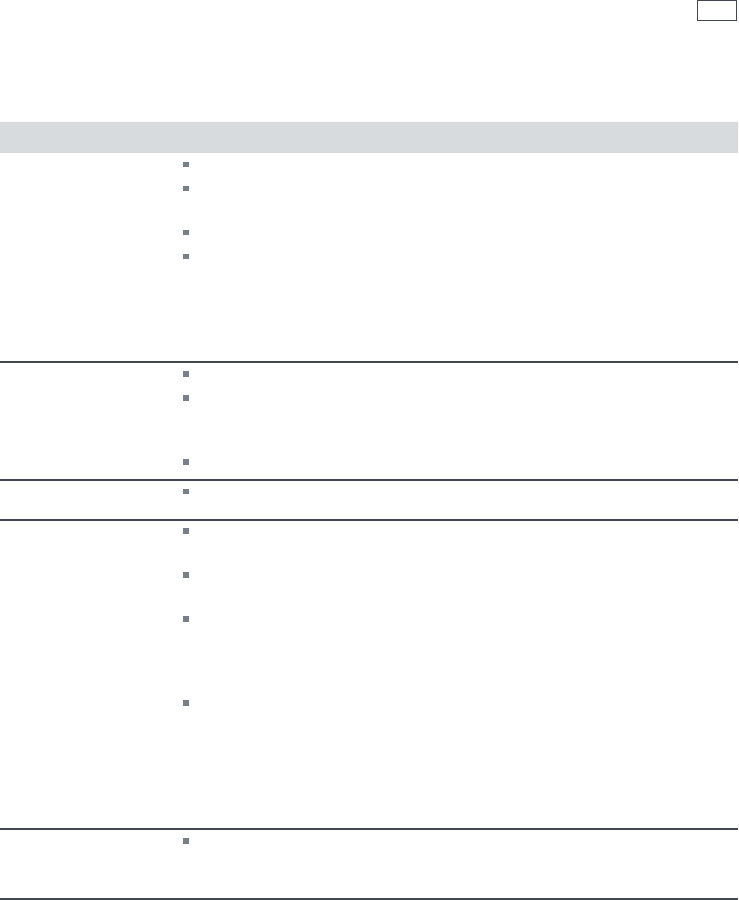
9
Care and cleaning
Cleaning chart
Cooktop part Cleaning Important
Trivets/pan
supports, burner
caps and enamel
surfaces
Hot soapy water and nylon scourer.
Soaking in a solution of biological
clothes washing detergent.
Mild abrasive cream cleaners.
Fume-free or heavy-duty oven cleaners
(follow manufacturer’s instructions).
Always allow cooktop parts to
cool completely before cleaning
them.
Always apply minimal pressure
with abrasive cleaners.
Remove spills as soon as the
cooktop is cool to avoid the soil
becoming burnt on.
Burner parts
Hot soapy water.
To clear the holes use a stiff nylon
brush or wire eg straight-ended paper
clip.
Mild abrasive cream cleaners.
Reassemble the burner parts
correctly.
Control knobs
Hot soapy water and a soft cloth.
Stainless steel
surfaces
Soak stains under a hot soapy cloth,
rinse and dry thoroughly.
Hard water spots can be removed with
household white vinegar.
Non-abrasive stainless steel cleaners.
Regular use of a stainless steel polish
will reduce fingerprints and other
marks.
Heavy soiling can be removed with
fume-free or heavy-duty oven cleaner
(follow manufacturer’s instructions).
Never use harsh/abrasive
cleaning agents as they will
damage the stainless steel
finish.
Chlorine or chlorine compounds
in some cleaners are corrosive to
stainless steel and may damage
the appearance of your cooktop.
Check the label on the cleaner
before using.
The graphics are etched onto
the steel by laser and will not
rub off.
Electrodes
Toothbrush and methylated spirits. A dirty or wet electrode will
prevent the burner lighting
efficiently.


















